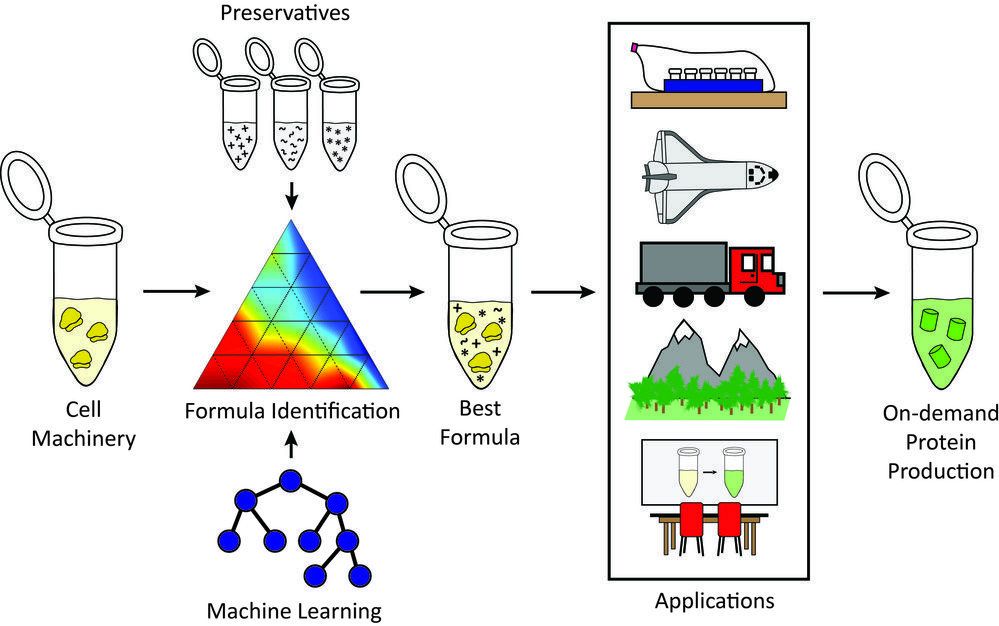Researchers at California Polytechnic State University have developed a low-cost approach that improves cell-free biotechnology’s utility for bio-manufacturing and portability for field applications.
Cell-free protein synthesis (CFPS) is a biotechnology that harnesses active cellular machinery in a test tube without the presence of living cells, allowing researchers to directly access and manipulate biochemical processes. Scientists and engineers are looking to utilize cell-free biotechnology for numerous applications including on-demand biomanufacturing of biomaterials and therapeutics, point-of-care diagnostics of disease biomarkers and environmental pollutants, and transformative biochemical education platforms.
Cell-free biotechnology researchers have already made many of these applications a reality in the lab, but getting them to work in the field, clinic and classroom is more difficult. The cellular machinery extracted for use in cell-free biotechnology contains biomolecules such as proteins and RNAs, which break down at warmer temperatures, greatly limiting the shelf life of the cellular machinery. Transporting it from one laboratory to another or taking it out of the lab for field applications requires refrigeration to maintain its activity. Being tethered to the “cold chain” is a fundamental limit to meeting cell-free biotechnology’s potential.
